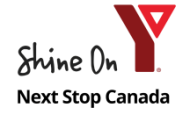Summary
In reality, highly skilled and experienced newcomers to Canada may face challenges getting accreditation in their fields. Looking into career options will enable a professional to start working and earning while waiting for professional registration.
This blog was written by Laura Dantsis & Willa Tam, Career Professionals with ACCES Employment
Are you an Internationally Educated Healthcare Professional (IEHP) looking for opportunities to keep you connected to the health sector while you pursue licensure in Canada? ACCES Employment’s Healthcare Connections program can help you discover fulfilling non-licensed employment opportunities in the broader healthcare sector and connect you with employers who value your skills and experience.
Through our 6-week full-time training, 1-on-1 coaching, networking, and hiring events, Internationally Educated Healthcare Professionals (IEHPs) can explore different occupations, better understand the Canadian labour market, and develop greater insight into Canadian workplace culture and business communication. We provide career exploration activities to help IEHPs find labour market pathways that match their education, strengths, skillsets, and experience. Our services were designed to help IEHPs develop sector-specific job-seeking strategies to secure high-quality non-licensed employment in the healthcare sector.

What is a Non-Licensed Healthcare Position?
To work as a licensed healthcare professional in Canada, you will usually undergo a lengthy licensure process which can be very difficult sometimes. While pursuing your licensure, you’ll want to stay employed and connected, and there are non-licensed healthcare positions that might be an excellent fit for your professional background. These jobs within the healthcare sector do not require licensure and certification.
Many IEHPs have done many things in their careers beyond providing direct care, and non-licensed positions can help you leverage your transferrable skills, knowledge, and experience. As IEHPs, you can pursue new roles in healthcare that allow you to use your healthcare skills to continue contributing to building happier and healthier individuals and communities.
How to Successfully Pursue Non-Licensed Employment?
“ACCES Employment helped me transfer my experience to the Canadian labour market, focus on my key strengths and skills, understand the eligibility requirements of various Canadian roles, develop job search strategies and prepare my resume for Canadian Employers.”
– ACCES Employment’s Healthcare Connections Alum
To successfully transition to a non-licensed healthcare position in Canada, you might need to expand your vision to take a much wider view of the types of healthcare positions in this country. It’s essential to remain open-minded as you explore how to expand your job search and picture yourself in various roles. Here are four steps to help you transition to a non-licensed healthcare position:
Step 1:
Identify the strengths and skills that have allowed you to succeed in your previous roles. Review skills that can be portable to another occupation called transferrable skills. Working with an Employment Counsellor can help you strategize a job search action plan to meet your short and long-term employment goals.
Step 2:
Learn about the non-licensed healthcare options in Canada, as they may vary and differ from what you are familiar with. ACCES Employment’s Healthcare Connections program can support you in figuring out what roles are available in the healthcare sector. Below is a short list of examples of non-licensed healthcare roles:
• Healthcare administration related: Medical Office Administrator, Medical/Clinical Assistant or Patient Services Coordinator
• Pharmacy or Pharmaceutical related: Pharmacy Assistant, Pharmaceutical Sales Representative, Quality Assurance Specialist or Medical Science Liaison
• Dentistry related: Dental Administrator, Dental Assistant or Treatment Coordinator
• Community Health-related: Health Promoter, Healthcare Educator, Case Worker or Program Coordinator
• Research related: Clinical Research Assistant, Clinical Research Coordinator, Research Associate or Research Project Manager
• Health Informatics related: Data Coordinator, Business Analyst or Patient Flow Coordinator
Step 3:
Ensure you have a Canadian format for your resume, cover letter, and LinkedIn account. Your resume and cover letter should be tailored strategically, highlighting your unique skill set to meet the employer’s needs stated in the job posting. At the same time, your LinkedIn account will allow you to create a strong social media presence for networking. Marketing your professional skills vary worldwide, and you’ll want to get support in understanding how to align how you promote yourself with what employers are looking for in Canada.
Step 4:
Networking is a significant part of newcomers’ establishing professional contacts in Canada. It is an effective tool for understanding the non-licensed healthcare sector’s complexities and learning about hidden, unadvertised jobs. Your networks can provide this valuable labour market information to you. To start networking, you’ll want first to develop a “30-second elevator pitch” that summarizes your professional experiences and the value you can bring to any organization. Second, you’ll create a plan of in-person and online networking activities. Lastly, you’ll connect directly with individuals to schedule informational interviews with seasoned professionals in the field.

Next Steps and Final Thoughts
ACCES Employment has worked with hundreds of IEHPs since 2017, and we understand how complex your career journey can be after immigrating to Canada. As job seekers and newcomers, it is important to practice self-care and self-compassion as you explore different ways to put your skills to use in the Canadian labour market. We encourage you to register with a pre-arrival or post-arrival employment services provider to learn more about services and personalized support to help the career transition of IEHPs.
Remember, finding your way in Canada may require some adjustments, but there are so many ways that you can continue to learn and grow professionally. By taking advantage of the available programs and resources, such as the Healthcare Connections program at ACCES Employment, you can connect with great opportunities that align with your interests and values and allow you to continue contributing to the health of individuals and communities. Good luck with your job search!







